The worlds of science, design and rave culture collide in Peter Saville’s glassware
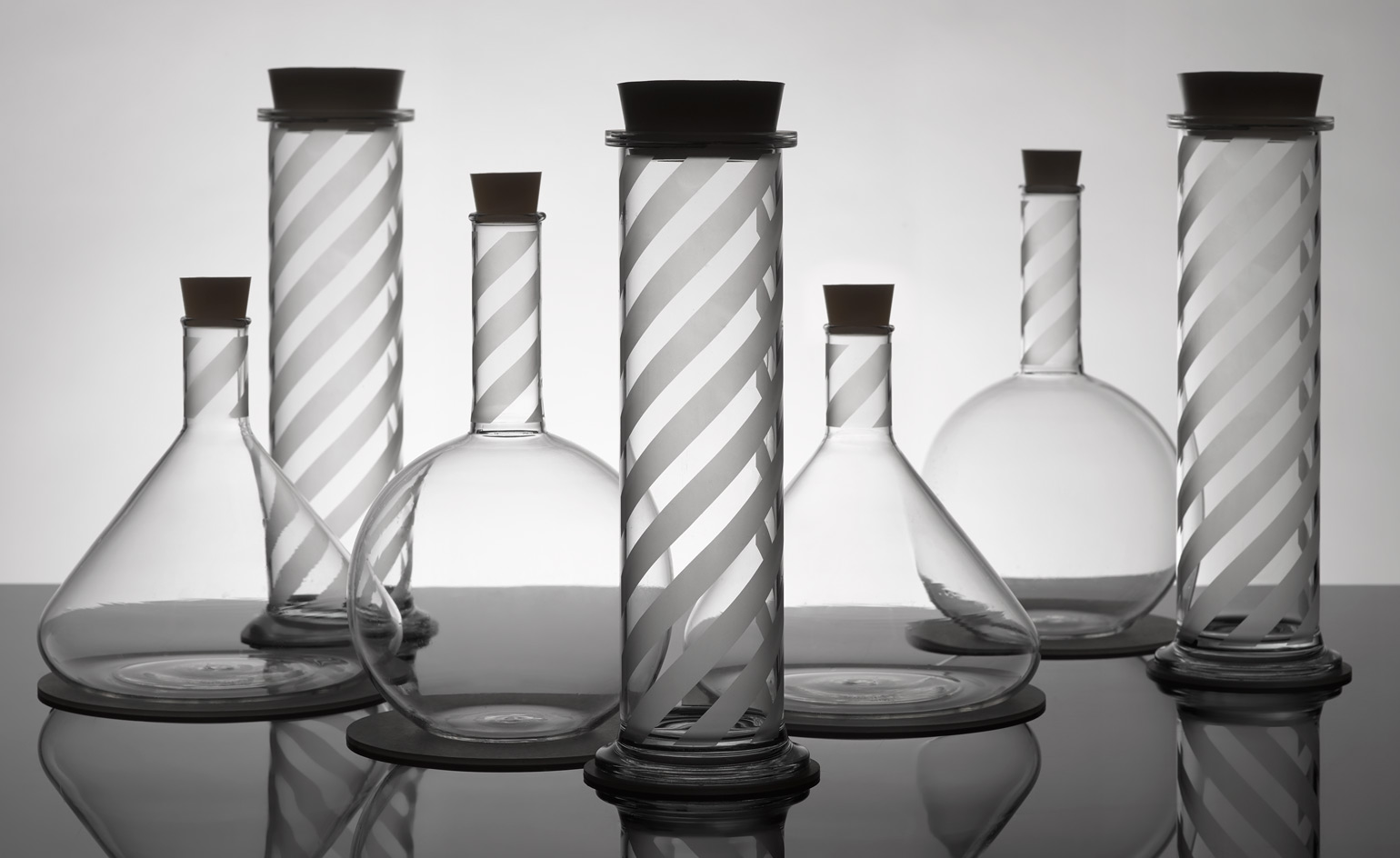
Peter Saville’s new glassware for the Museum of Science and Industry (MSI) is a nod to not only Manchester’s part in the industrial revolution, but also to its role in the postmodern cultural overhaul enacted by punk and rave. Styled after laboratory flasks, each of Saville’s three vases has his diagonal warning stripes design etched across it, a symbol he originally re-appropriated for Factory Records when he co-founded it in 1979.
This graphic sampling of hazard stripes for Factory (which was hand-drawn; this was pre-web) was a way of reclaiming Manchester’s industrial identity, which by the 1970s had become associated with unemployment and the past. The stripes appeared across the label’s record sleeves and promo material, and designer Ben Kelly incorporated them into his interior scheme at the Haçienda, most famously on the floor.
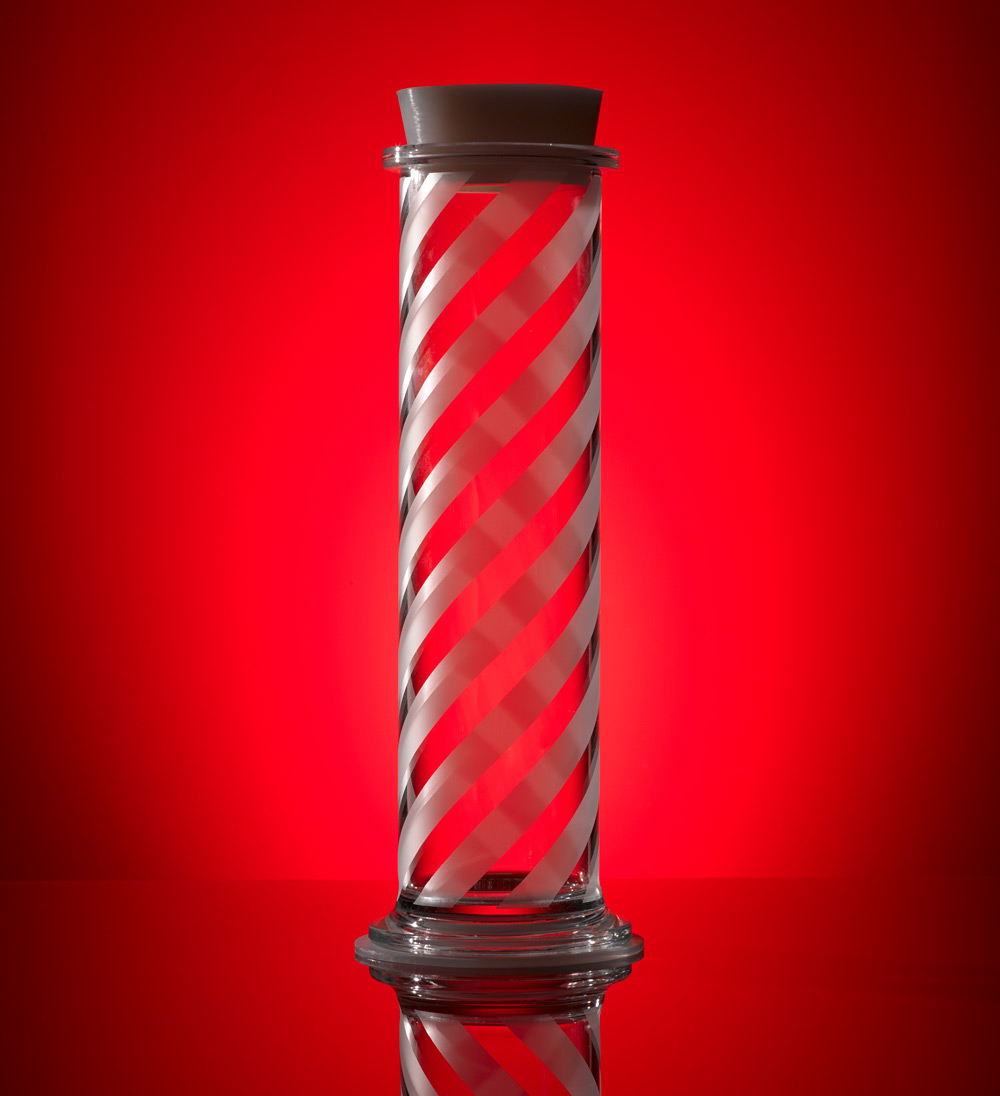
‘MSI + Peter Saville Gas Jar’
The vases are MSI’s first venture into design products beyond your average museum shop merchandise. MSI is part of the Science Museum Group, which is embarking on a new series of product design partnerships with high profile designers at its London museums, starting with a collaboration with Zaha Hadid Architects that pays tribute to the firm's new Kensington mathematics gallery.
This collaboration is part of a current wave of cultural institutions integrating the club scene of the 1980s and 1990s into art history history and design heritage. Saville thinks the realities of ageing and economics are driving the resurgent interest in rave culture in the arts and design world, both among creators and audiences. ‘It’s a cycle,’ he says, explaining, ‘A quarter of a century ago “rave” was the principle youth movement, so it was immersive and formative for many who now form an affluent consumer strata and have cultural appreciation.’
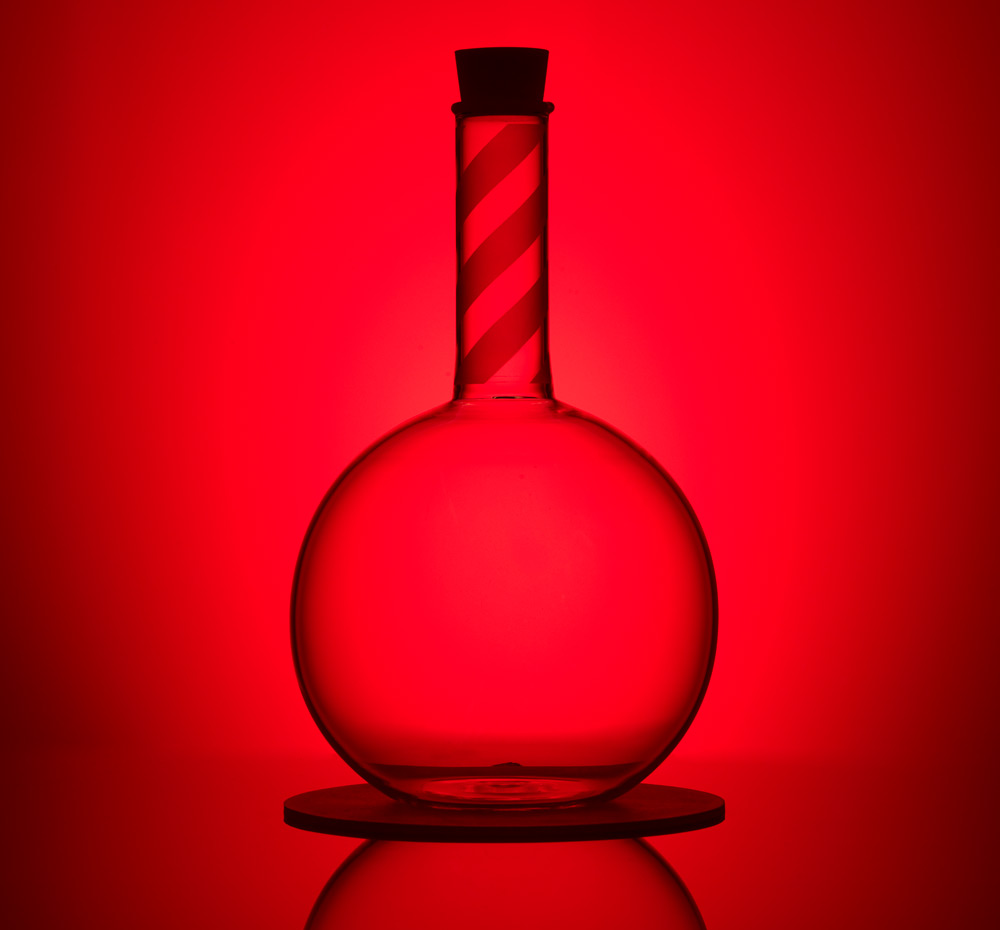
‘MSI + Peter Saville Round Flask’
Saville has served as consultant creative director for the City of Manchester since 2004, and the glassware launch comes in advance of the museum’s integration into a broader cultural vision for Manchester, one that seeks to inspire popular enthusiasm by emphasising the legacy of the Haçienda and Factory Records. Saville’s three-stripe design, originally created for MSI’s entrance gates in 2013, combines that recent history with city signage from further back, namely Manchester’s coat of arms, which uses three stripes to represent local rivers Irwell, Medlock and Irk. Saville stripped the number of hazard lines he used for Factory back to three for MSI to echo this symbolism.
As Manchester was the birthplace of the industrial revolution, MSI essentially tells the story of the machine age. Saville’s postmodern reclamation of that faded, jaded era through his design is therefore particularly pertinent to the institution’s purpose. MSI now owns Factory’s archives of design drawings, posters, guest lists and business correspondence, primarily made up of the collection of Rob Gretton (manager of New Order/Joy Division and partner in Factory and the Haçienda), and has on loan a number of objects from the Anthony H Wilson Estate (Tony Wilson founded the Haçienda and was known as Mr Manchester). To top it all off, a new Manchester concert hall, designed by OMA, is set to open beside MSI; it’s called The Factory – a reminder that today’s youthful rebellion will be tomorrow’s cultural canon.
INFORMATION
First editions of the flasks are £99 each. For more information, visit the Science Museum website
Wallpaper* Newsletter
Receive our daily digest of inspiration, escapism and design stories from around the world direct to your inbox.
Kasia Maciejowska is a writer and editor covering arts and culture. Her first book The House of Beauty and Culture (ICA, 2016) was about a radical London crafts collective, and she’s currently working on a monograph about Moroccan-French photographer Leila Alaoui (Skira, 2026). Consultancy clients include museums, galleries, design studios, and futures agencies. She also runs a creative career mentoring network for young refugee women
-
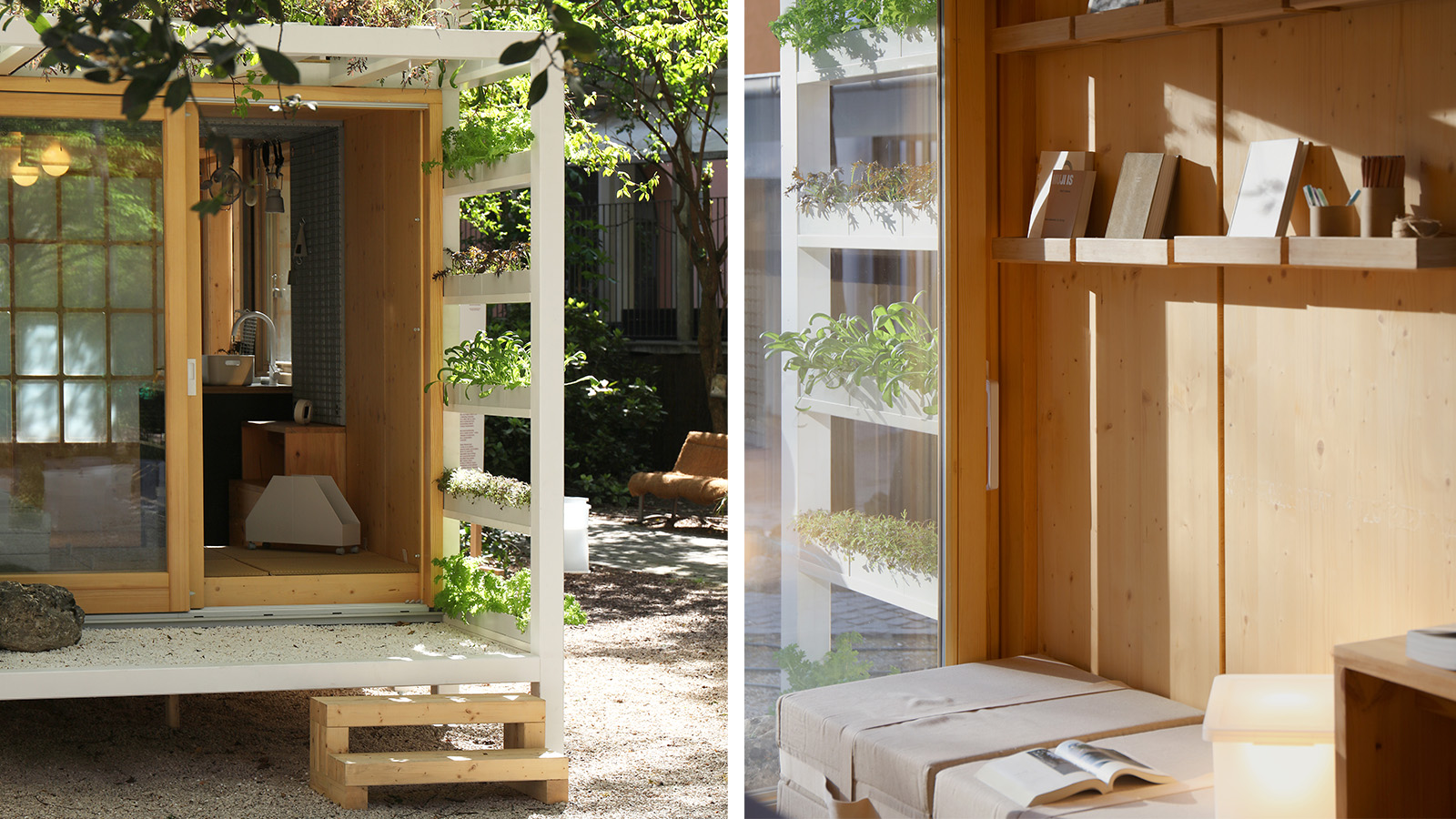 Japan in Milan! See the highlights of Japanese design at Milan Design Week 2025
Japan in Milan! See the highlights of Japanese design at Milan Design Week 2025At Milan Design Week 2025 Japanese craftsmanship was a front runner with an array of projects in the spotlight. Here are some of our highlights
By Danielle Demetriou
-
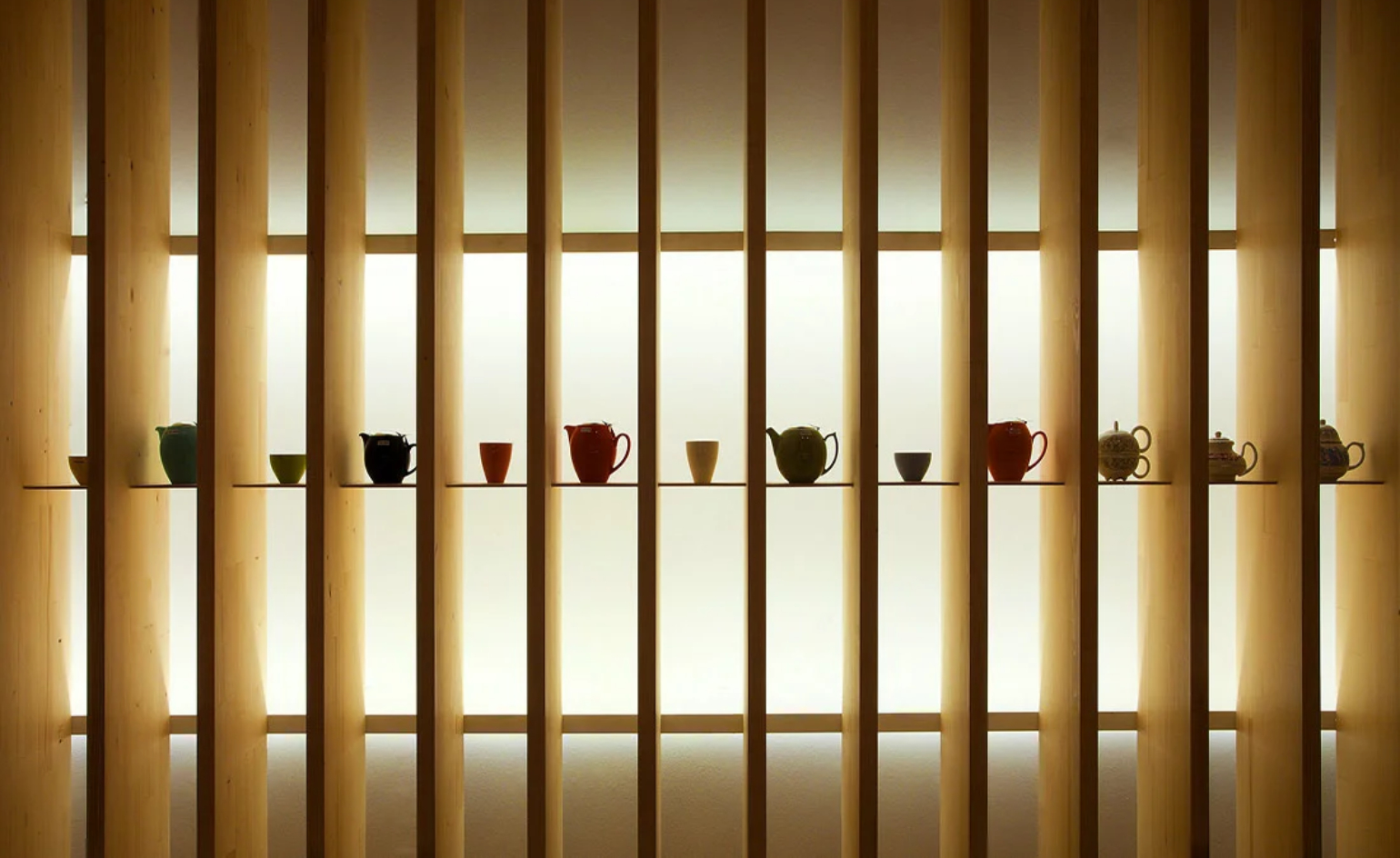 Tour the best contemporary tea houses around the world
Tour the best contemporary tea houses around the worldCelebrate the world’s most unique tea houses, from Melbourne to Stockholm, with a new book by Wallpaper’s Léa Teuscher
By Léa Teuscher
-
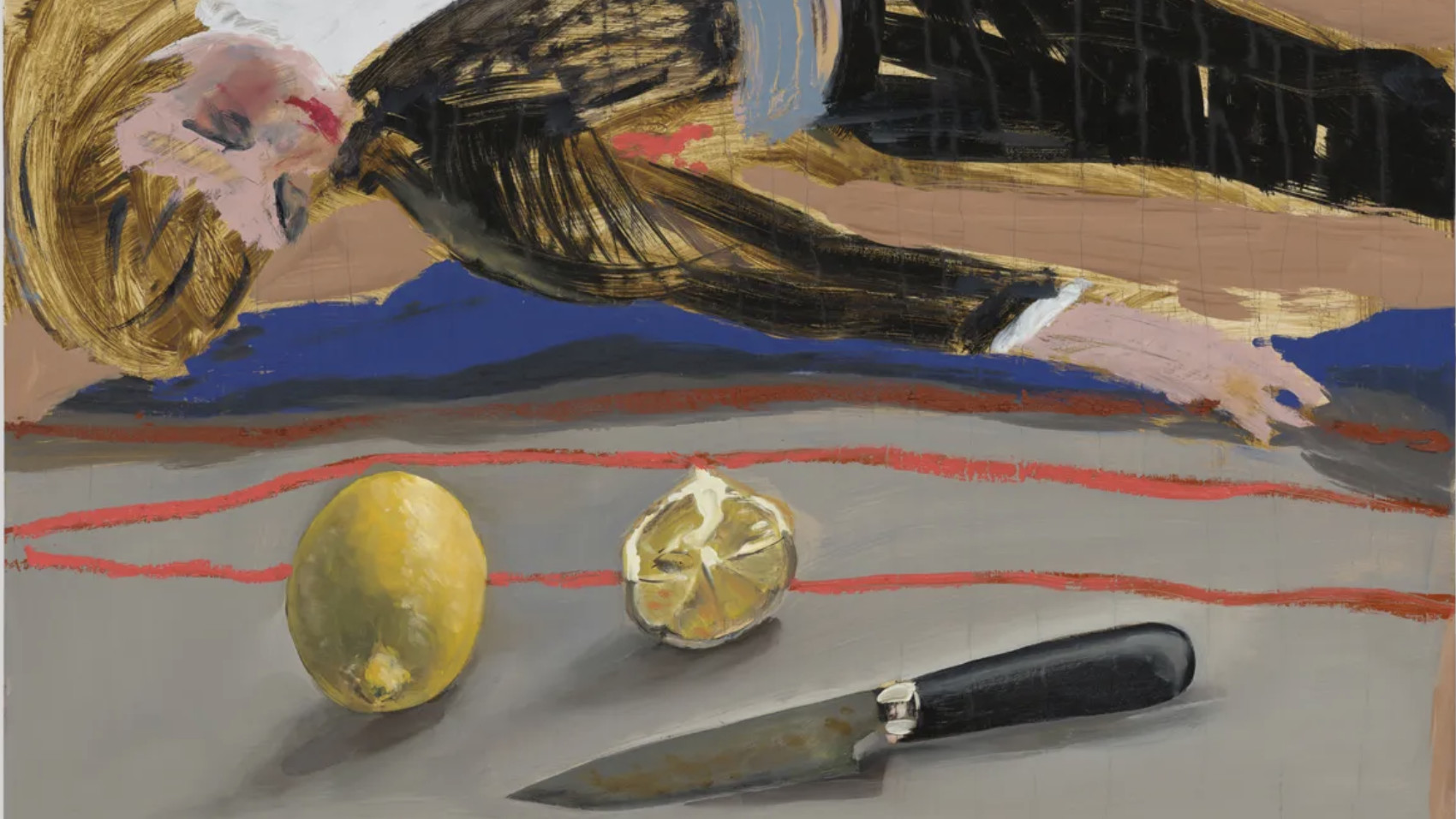 ‘Humour is foundational’: artist Ella Kruglyanskaya on painting as a ‘highly questionable’ pursuit
‘Humour is foundational’: artist Ella Kruglyanskaya on painting as a ‘highly questionable’ pursuitElla Kruglyanskaya’s exhibition, ‘Shadows’ at Thomas Dane Gallery, is the first in a series of three this year, with openings in Basel and New York to follow
By Hannah Silver
-
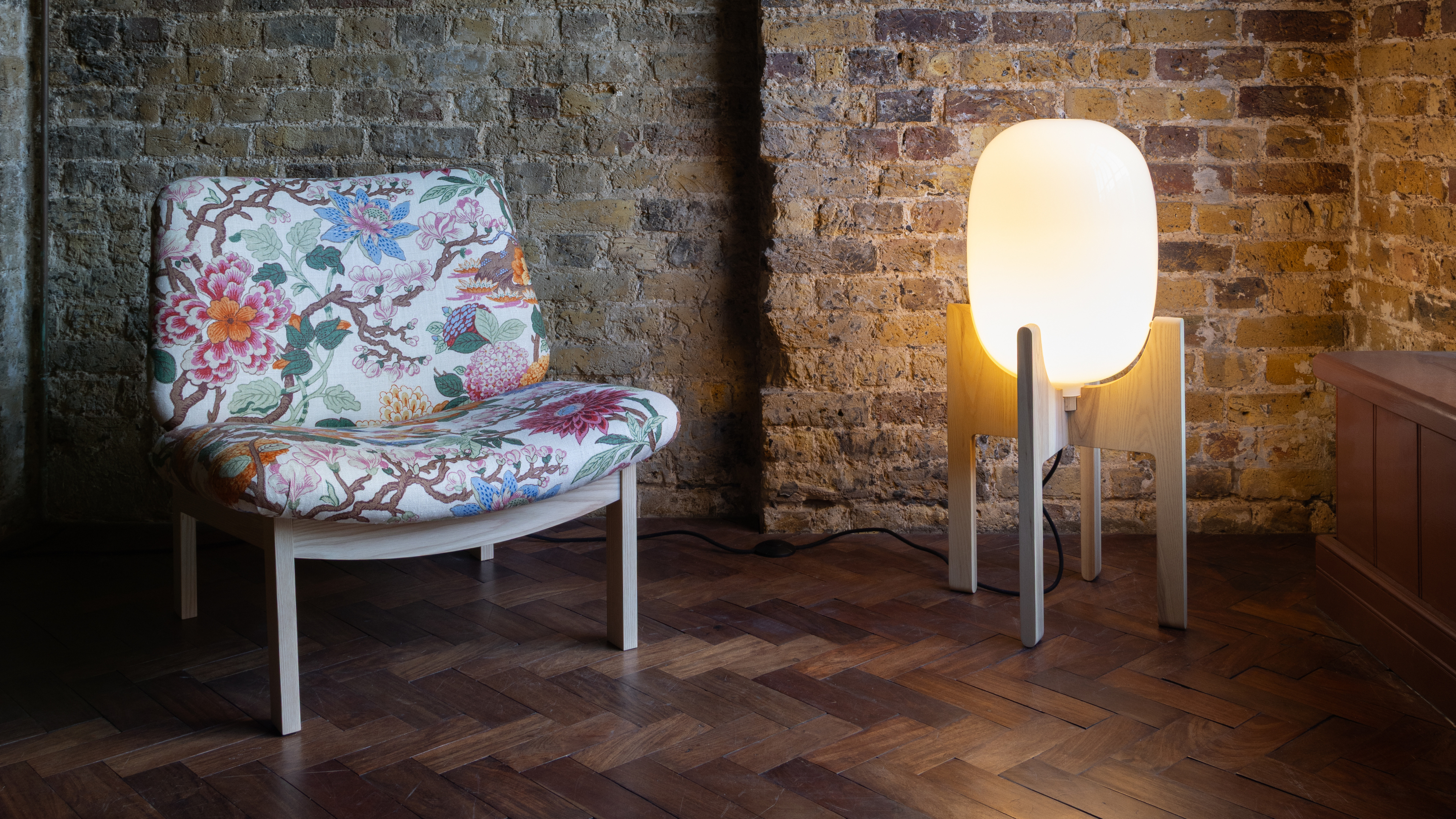 Tamart’s ‘Clore’ floor lamp revives a modernist lighting classic
Tamart’s ‘Clore’ floor lamp revives a modernist lighting classicTamart debuts the 'Clore' floor lamp, a handblown glass design originally created in 1963 for Sir Charles Clore's London penthouse
By Ali Morris
-
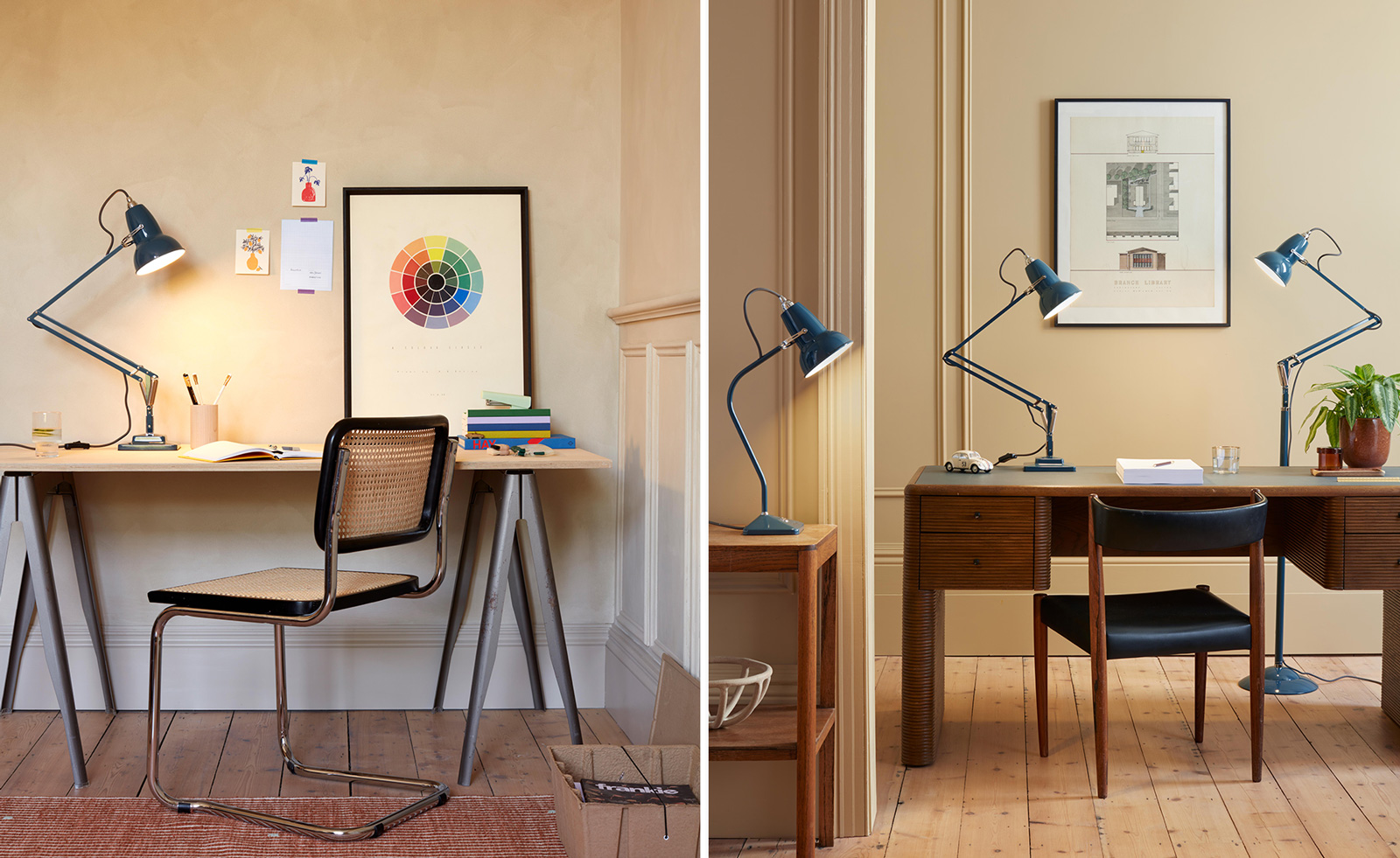 Anglepoise and National Trust look to Britain’s coastal landscape for a new blue lighting collection
Anglepoise and National Trust look to Britain’s coastal landscape for a new blue lighting collectionAnglepoise and National Trust announce their third lighting collection, Neptune Blue
By Hannah Silver
-
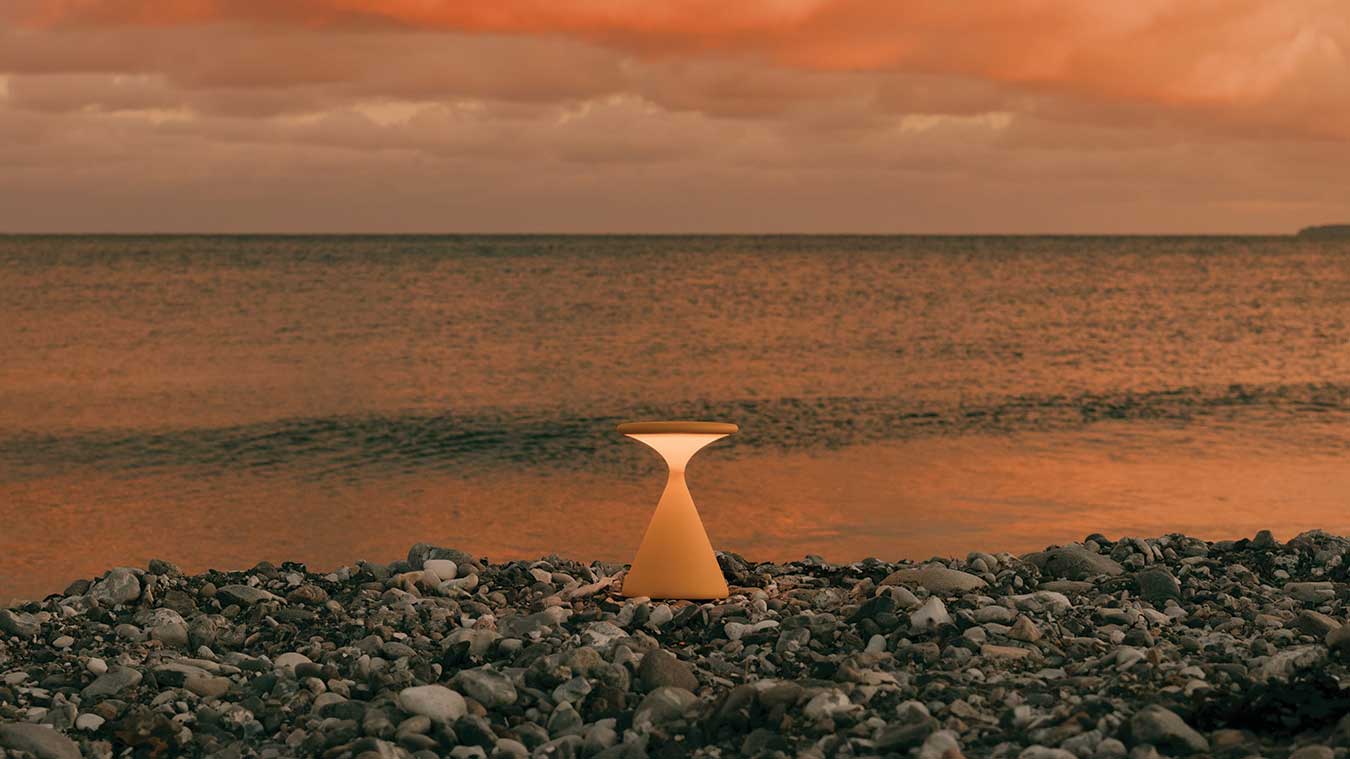 Portable lights to illuminate your winter nights
Portable lights to illuminate your winter nightsThe best portable lights and where to buy them: brighten up your summer nights with this edit of portable lamps for your desk and garden
By Rosa Bertoli
-
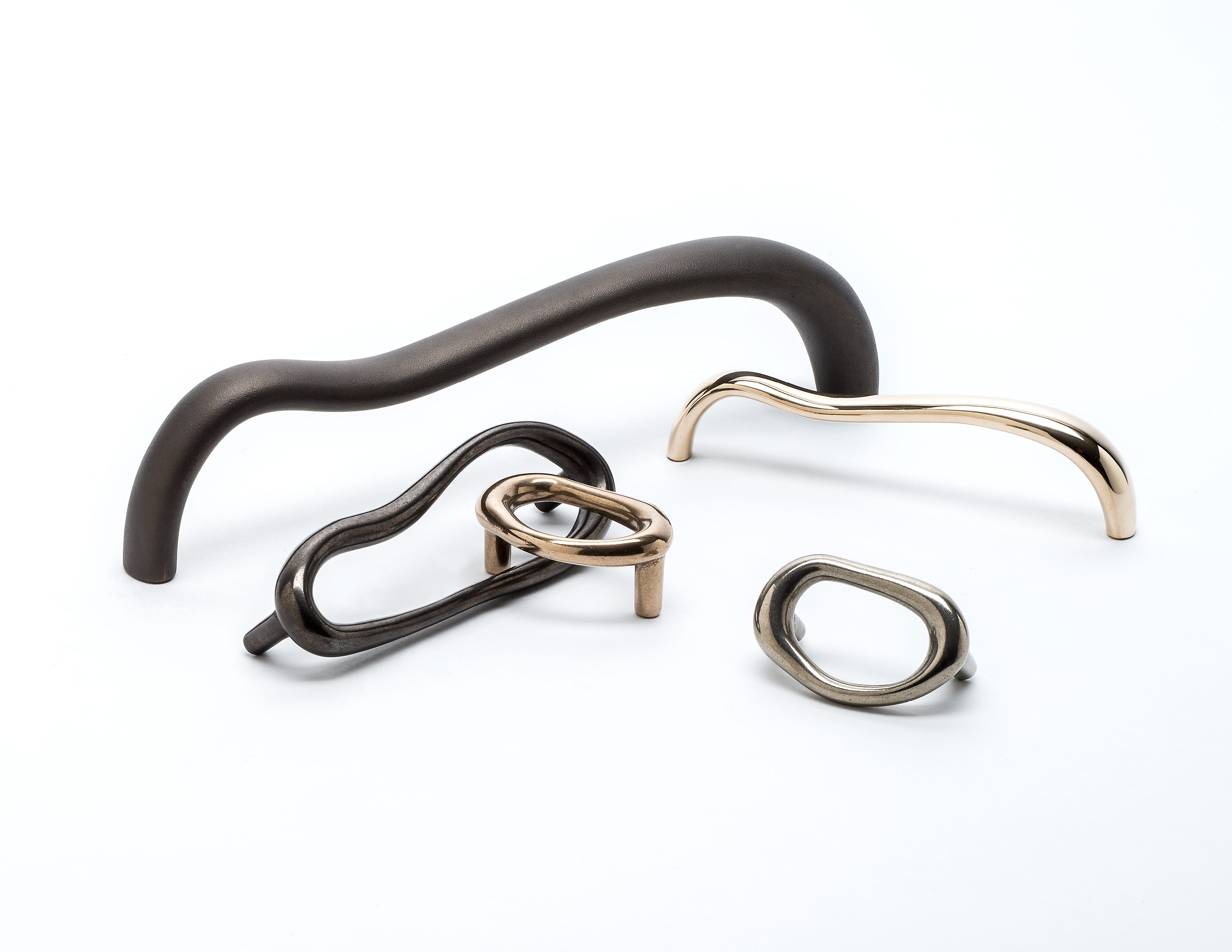 Door handles and knobs: latest designs for quick home updates
Door handles and knobs: latest designs for quick home updatesDoor handles and beyond: open the door to a world of practical design details and ideas for door furniture with our selection of architectural ironmongery from some of the world's leading designers and makers
By Rosa Bertoli
-
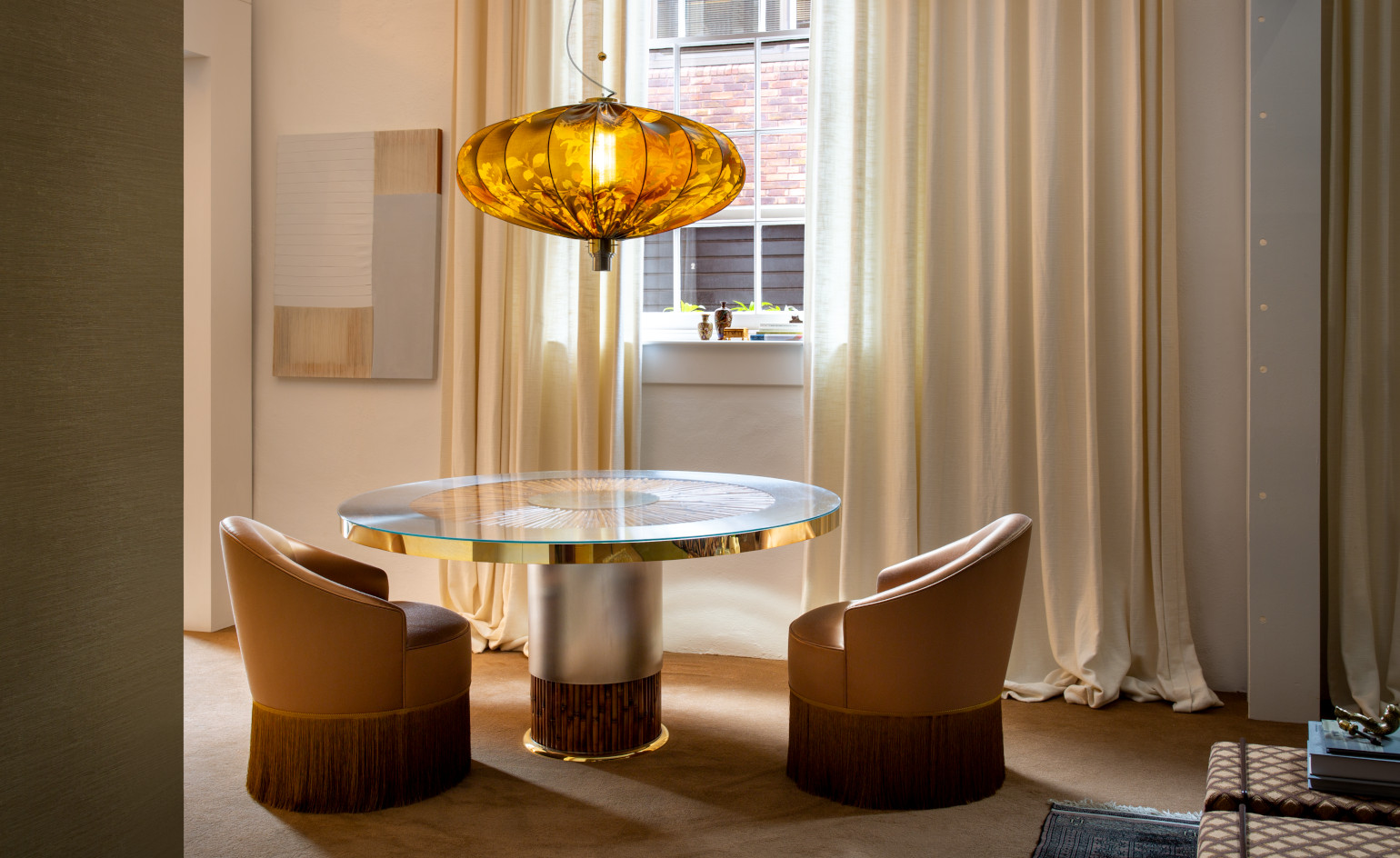 Dimoremilano opens immersive Marylebone residency around Frieze London 2022
Dimoremilano opens immersive Marylebone residency around Frieze London 2022Coinciding with this year’s Frieze London, Dimoremilano has opened an immersive residency at The Invisible Collection’s new Marylebone HQ
By Mary Cleary
-
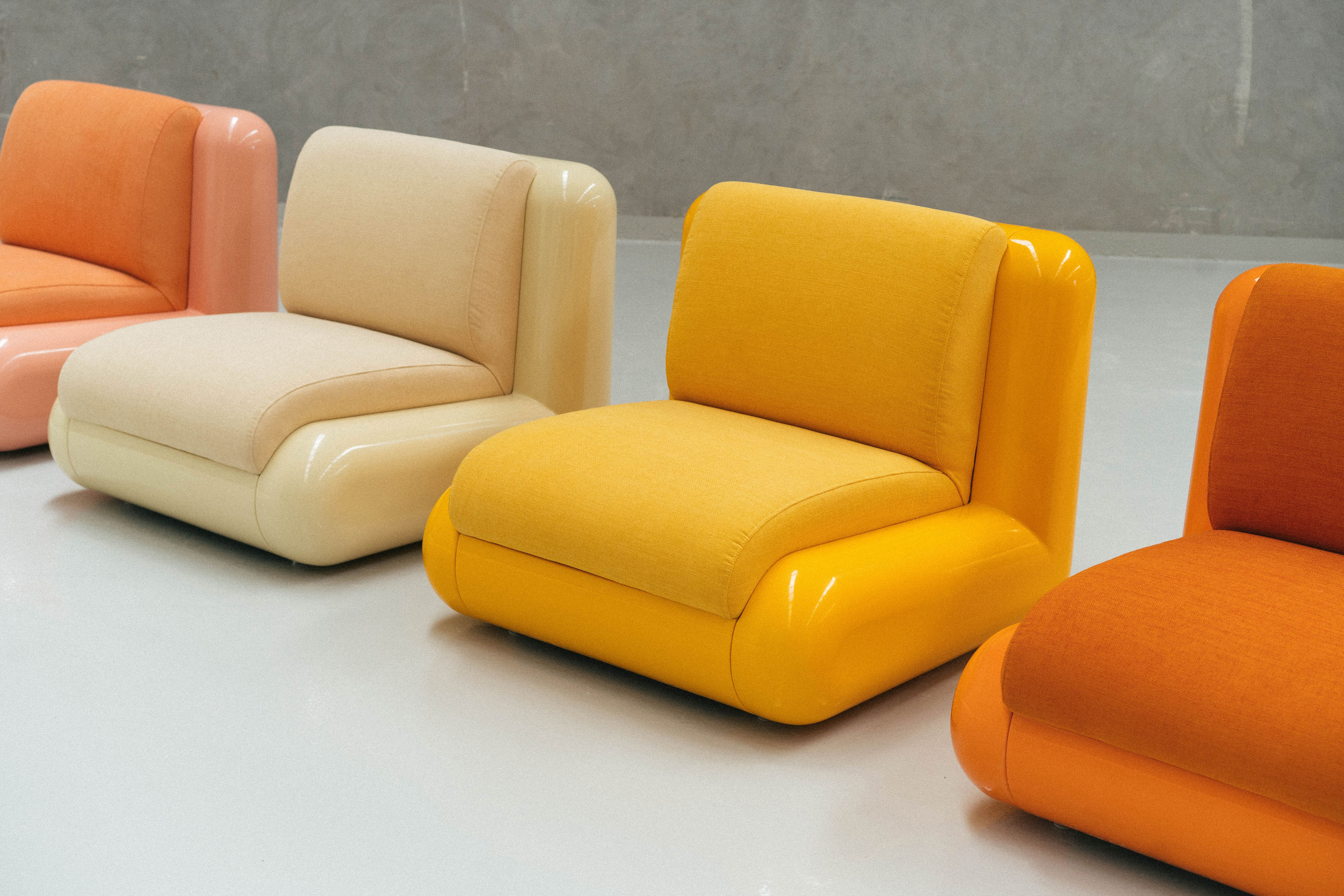 Holloway Li’s debut furniture collection is like colourful candy
Holloway Li’s debut furniture collection is like colourful candyHolloway Li presents the ‘T4’ collection of furniture, created in collaboration with Turkish manufacturer Uma and inspired by the designers’ 1990s childhood
By Rosa Bertoli
-
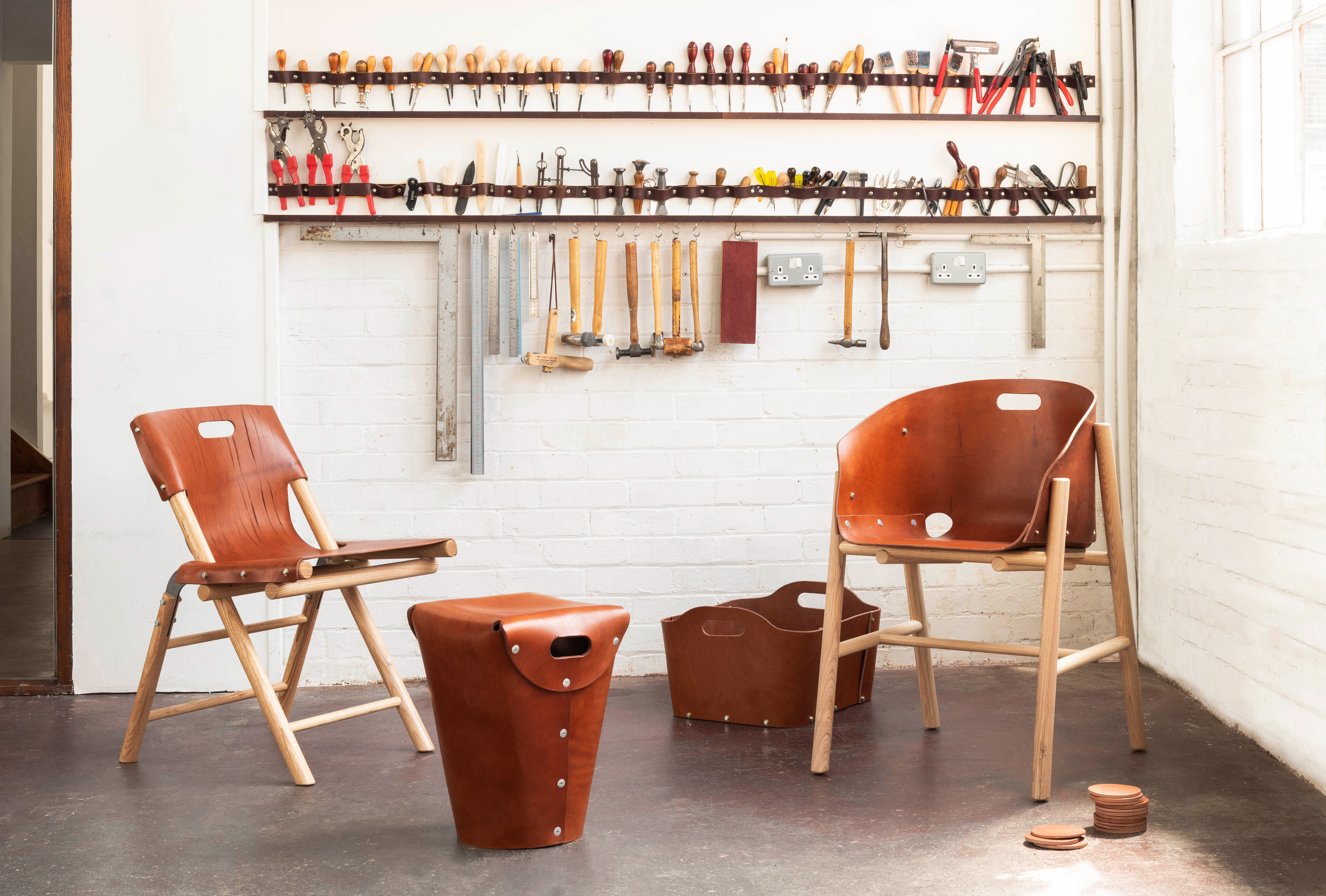 Bill Amberg creates leather furniture in collaboration with the Knepp Estate
Bill Amberg creates leather furniture in collaboration with the Knepp EstateLondon-based designer Bill Amberg has created a series of furniture pieces for the Knepp Estate, Sussex, using leather from the rewilding project's animals for an on-site cafe due to open in 2023
By Giovanna Dunmall
-
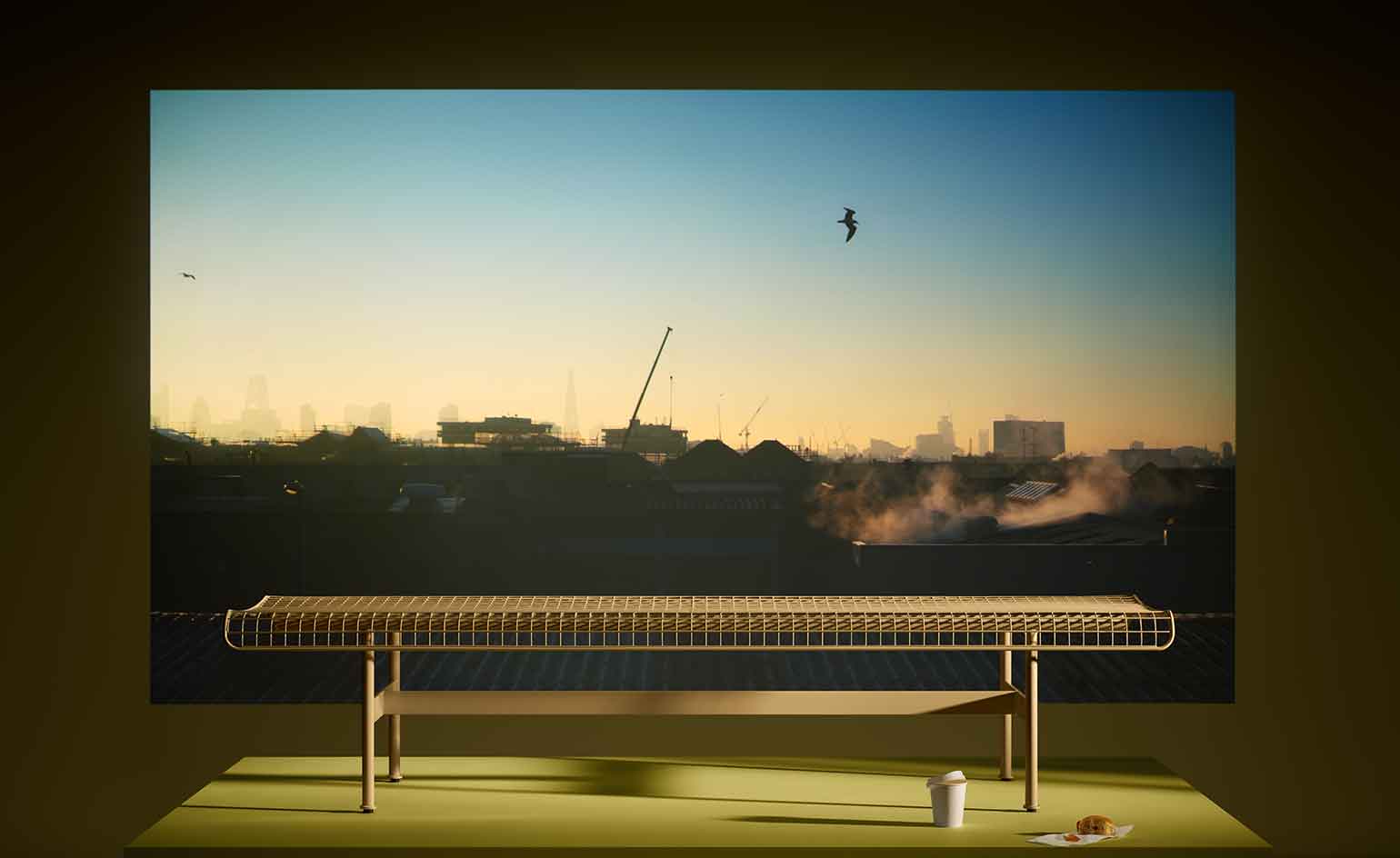 Munch Museum’s furniture is inspired by the artist’s colours
Munch Museum’s furniture is inspired by the artist’s coloursSustainability-focused Norwegian furniture company Vestre has created furniture designed by Andreas Engesvik and Jonas Stokke for the new Munch Museum in Oslo
By Rosa Bertoli